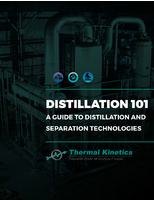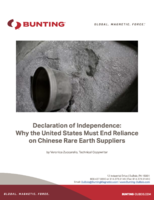Ultrasonic Flow Transmitters suit process applications.
Press Release Summary:

Model CSLFC transmitters measure flow ranges from 4.5-3,000 gpm in 4-10 in. pipe and provide continuous 4-20 mA flow signal. Manufactured from Schedule 40 epoxy coated carbon steel, units incorporate ULTEM® encapsulated ultrasonic transducers with choice of seal, as well as mixed-signal ASIC with timing, control, and transducer drive circuitry. Devices do not impact flow, pressure, or transit times of fluids and are unaffected by fluid temperatures or viscosities.
Original Press Release:
New Ultrasonic Flow Transmitters Designed for Process Applications
Hudson, MA - Clark Solutions announces the availability of a new line of ultrasonic flow transmitters ideally suited for use in process systems. These transmitters are easy to install, do not impact the flow, pressure, or transit times of fluids, and are unaffected by fluid temperatures or viscosities, making them ideal for measuring flow ranges from 4.5 to 3000 GPM in 4" to 10" pipe. For pipe sizes under 4" Clark offers the Clark Sonic CSLFB. Information is available at http:www.clarksol.com/html/cslfb.cfm.
Like all Clark Sonic Ultrasonic Flow Transmitters, Model CSLFC Transmitters feature no moving parts, excellent long-term stability, no pressure drop, and high accuracy at a lower cost than similar instruments. Built out of Schedule 40 epoxy coated carbon steel, CSLFC Transmitters feature ULTEM® encapsulated ultrasonic transducers with a choice of EPDM, Buna-N, Neoprene(TM), FKM, or other seals. Clark Sonic Model CSLFC Transmitters provide a continuous 4-20mA flow signal. Available options include direction of flow capability, NEMA 4 and 8 pin connector receptacles for simplified installation, and a DP/DS Panel Meter/Display. Model CSLFC Transmitters are available for purchase online at www.clarksol.com/html/cslfc.cfm
At the heart of the Clark SonicUltrasonic Flow Transmitter is a proprietary mixed signal ASIC, (Application Specific IC,) which allows sophisticated timing, control and transducer drive circuitry to be combined on a single integrated circuit. The ASIC uses a special algorithm that is an improvement upon the standard single-path measurement technique. Clark ultrasonic transmitters utilize the "sing around" method, where each ultrasonic transducer alternates between transmitting and receiving to measure differences in flight time between upstream and downstream transmissions. The flight time of the sound pulse from the transmitting transducer to the receiving transducer will be shortened if the pulse is launched in the direction of flow, and increased if launched opposite to the direction of flow.
By alternating the transmitting and receiving transducers, the difference in these transit times can be used to calculate the velocity of the flow, which, when multiplied by the area of the pipe, results in a measure of volumetric flow rate. The primary advantage of the "sing around" method is that the velocity of the fluid is being measured independent of the relative speed of sound in that given fluid. The output of Clark transmitters is also unaffected by changes in water temperature, density, and viscosity.
Clark Solutions has a fifty-year history of providing unique solutions to the measurement, control, and monitoring of pressure, flow, and level in liquids and gases. Located in Hudson, Massachusetts, the company offers instrumentation, valves, and pumps to record, monitor, and control flow, velocity, pressure, temperature, humidity, level, gas concentration, and other properties. For more information contact Clark Solutions, 10 Brent Drive, Hudson, MA 01749, Tel. 978-568-3400, Fax. 978-568-0060, or visit our web site at www.clarksol.com.




